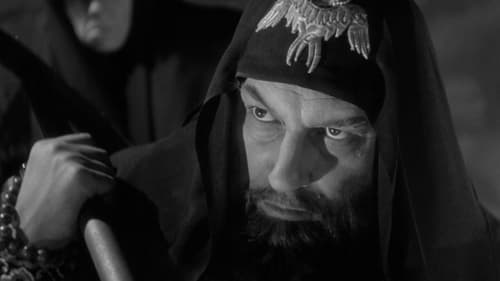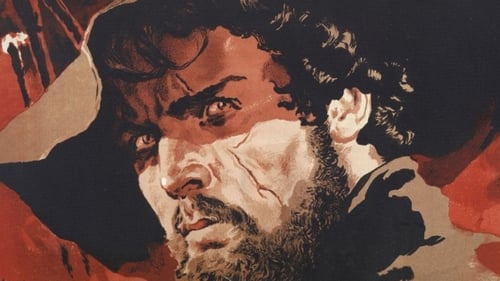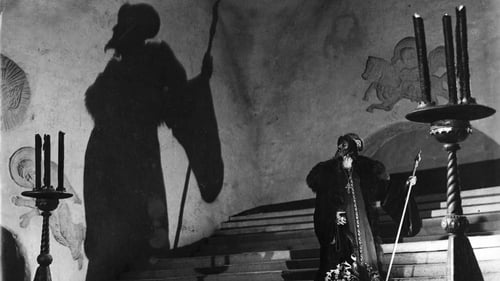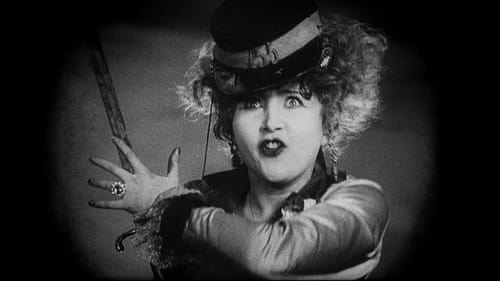
Camera Operator
On holiday in Yalta, Muscovite banker Dimitri Gurov contrives to meet a young woman who walks her dog. She’s Anna Sergeyevna, trapped in a loveless marriage to a lackey. He’s unhappy in an arranged marriage. With neither spouse at hand, Dimitri and Anna begin an affair. After a short time, she returns to Saratov, he to Moscow, believing it’s good-by forever. All winter he is miserable, enervated, distracted by tristesse. In desperation, he contrives to go to Saratov, surprising her at a concert. Fearing discovery in her home town, she promises to come to Moscow. Will they cast aside reputation to live together, or will theirs be an affair of infrequent encounters in hotel rooms?

Director of Photography
This is the second part of a projected three-part epic biopic of Russian Czar Ivan Grozny, undertaken by Soviet film-maker Sergei Eisenstein at the behest of Josef Stalin. Production of the epic was stopped before the third part could be filmed, due to producer dissatisfaction with Eisenstein's introducing forbidden experimental filming techniques into the material, more evident in this part than the first part. As it was, this second part was banned from showings until after the deaths of both Eisenstein and Stalin, and a change of attitude by the subsequent heads of the Soviet government. In this part, as Ivan the Terrible attempts to consolidate his power by establishing a personal army, his political rivals, the Russian boyars, plot to assassinate him.

Director of Photography
Italy, XIX century. The country is occupied by Austrian troops, the resistance movement is actively developing. Student Arthur Burton is involved in the activities of the underground organization “Young Italy”, envies its leader, Giovanni Bolla, and is jealous of his bride Gemma. He talks about this at a confession to a priest, as a result of which gendarmes take revolutionaries under arrest...

Director of Photography
The rise of a Lithuanian collective farm in the post-war years and the struggle against the remnants of the past in people's minds.

Director of Photography
A biopic based on the life of Russian literary critic Vissarion Belinsky (1811–1848). The production of the film was completed in 1951, but it was not released until 1953, following the reshooting of various scenes demanded by Stalin.

Cinematography
A biopic based on the life of Russian scientist and doctor Nikolai Ivanovich Pirogov (1810-1881), famous for being the founder of field surgery.

Cinematography
A 1945 Soviet war film which, along with the second part of Eisenstein's Ivan the Terrible was harshly criticized by Andrei Zhdanov and banned. A version of the film, released in 1956 during the Khrushchev Thaw, was disowned by director Grigori Kozintsev because the reediting was done without his participation.

Director of Photography
Set during the early part of his reign, Ivan faces betrayal from the aristocracy and even his closest friends as he seeks to unite the Russian people. Sergei Eisenstein's final film, this is the first part of a three-part biopic of Tsar Ivan IV of Russia, which was never completed due to the producer's dissatisfaction with Eisenstein's attempts to use forbidden experimental filming techniques and excessive cost overruns. The second part was completed but not released for a decade after Eisenstein's death and a change of heart in the USSR government toward his work; the third part was only in its earliest stage of filming when shooting was stopped altogether.

Director of Photography
Zoya Vladimirovna Strelnikova, a famous operetta actress, quits the theater and gets a nanny in a military hospital. There she meets the wounded major Peter Nikolayevich Markov.

Cinematography
One of the anthology films about Soviet citizens resisting the Nazi invaders during World War II, the feature consists of two stories, one about a teenage woman telephone operator who sacrifices herself, the other about a farm girl tending a sick pig who deals with two paratroopers seeking shelter.

Director of Photography
A young teacher is sent to a remote province, separating her from her lover, and sets about the difficult task of building a school there.

Cinematography
In the short-lived Commune of Paris, a conscripted soldier falls in love with a Communard saleswoman. As the army cracks down on the revolutionaries, the soldier is forced to fight against the Commune, and the pair's love is put to the test.

Director of Photography
A young country girl who becomes an apple seller is seduced and abandoned. She finds a protector but when he is arrested for theft she finds honest work in a factory.

Cinematography
Soviet film based on Nikolai Gogol stories "Nevsky Prospekt" and "The Overcoat".

Cinematography
Typically of the heady days of early Soviet cinema, this is constructed according to the fast, sharp editing principles advocated by Eisenstein, complete with symbolic inserts; but in terms of subject matter, it's much less explicitly political than most movies emerging from Russia in the '20s. Chronicling a young sailor's descent into a murky, treacherous underworld of pimps and thieves, after having encountered a Louise Brooks lookalike at a fairground and missed his departing boat, it's a lively moral fable that delights in vivid visual effects and quirky characterisations. If the plot occasionally reveals gaping holes, and the tacked-on ending urging the clearance of the Leningrad slums seems to be rather gratuitous, there's enough going on to keep one attentive and amused.













